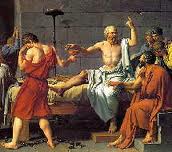 Ah the Miller's Tale, how sweet is the quest of two people and their battle to share their love... not. A young girl marries an older guy. With the rules and regulations of fixed marriages in place back in this day and time, one cannot expect this child not to search out a younger companion. The carpenter is smart to keep his eye on her, but he should have been watching the astrologer living with him.
Ah the Miller's Tale, how sweet is the quest of two people and their battle to share their love... not. A young girl marries an older guy. With the rules and regulations of fixed marriages in place back in this day and time, one cannot expect this child not to search out a younger companion. The carpenter is smart to keep his eye on her, but he should have been watching the astrologer living with him.At first the carpenter's wife, Alison, refuses Nicholas, but it didn't take long for his advances to convince her. He grabs her between the legs and holds her by the hips, professing that if he doesn't have his way with her, he'll surely die (90-95). The tide turns in his favor. I'm not sure how. He doesn't say anything to savor.
A plan hatches from the mind of Nicholas. Alison knows the sly scheme, but it is Nicholas who pulls the blinders over the carpenter's eyes. John goes to work, thinking he's going to save his dear Alison from a watery grave, and Nicholas and Alison commit adultery in the dark of night. Absolom, a musician from Oxford pines for Alison too, and he almost ruins the sexual encounter between the two lovers. Yet, he is tricked and kisses her backside, but he comes back and receives a fart to the face and brands Nicholas' ass, an exchange for the fragrant gift.
This piece is all about bodily functions and sexual excursions. The comedy that these things bring out is timeless. We still see these things today in literature and film. Will Ferrell comes to mind. His sexual comedy is funny to most Americans. My mother would disagree.









